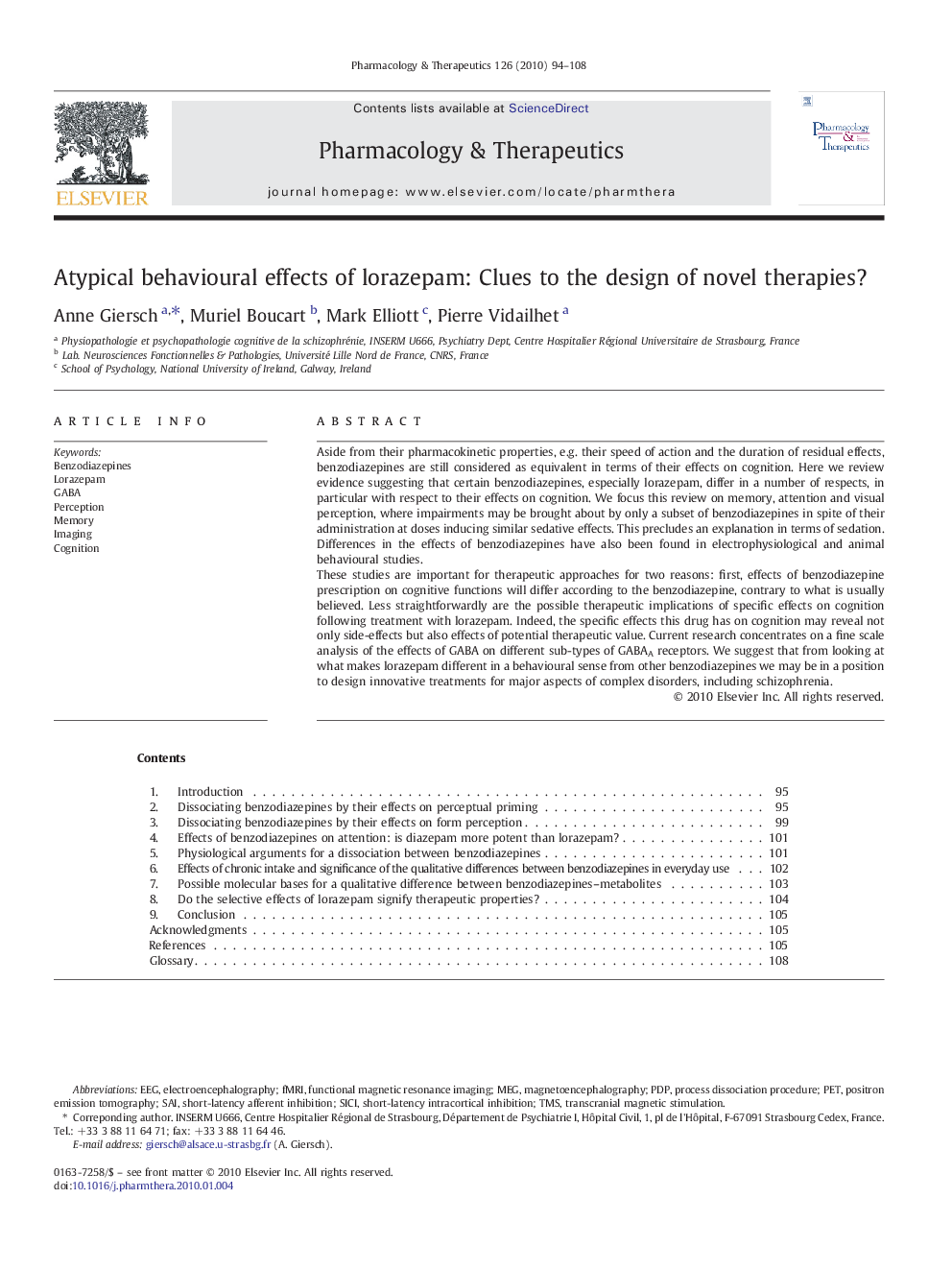| Article ID | Journal | Published Year | Pages | File Type |
|---|---|---|---|---|
| 2563584 | Pharmacology & Therapeutics | 2010 | 15 Pages |
Aside from their pharmacokinetic properties, e.g. their speed of action and the duration of residual effects, benzodiazepines are still considered as equivalent in terms of their effects on cognition. Here we review evidence suggesting that certain benzodiazepines, especially lorazepam, differ in a number of respects, in particular with respect to their effects on cognition. We focus this review on memory, attention and visual perception, where impairments may be brought about by only a subset of benzodiazepines in spite of their administration at doses inducing similar sedative effects. This precludes an explanation in terms of sedation. Differences in the effects of benzodiazepines have also been found in electrophysiological and animal behavioural studies.These studies are important for therapeutic approaches for two reasons: first, effects of benzodiazepine prescription on cognitive functions will differ according to the benzodiazepine, contrary to what is usually believed. Less straightforwardly are the possible therapeutic implications of specific effects on cognition following treatment with lorazepam. Indeed, the specific effects this drug has on cognition may reveal not only side-effects but also effects of potential therapeutic value. Current research concentrates on a fine scale analysis of the effects of GABA on different sub-types of GABAA receptors. We suggest that from looking at what makes lorazepam different in a behavioural sense from other benzodiazepines we may be in a position to design innovative treatments for major aspects of complex disorders, including schizophrenia.
